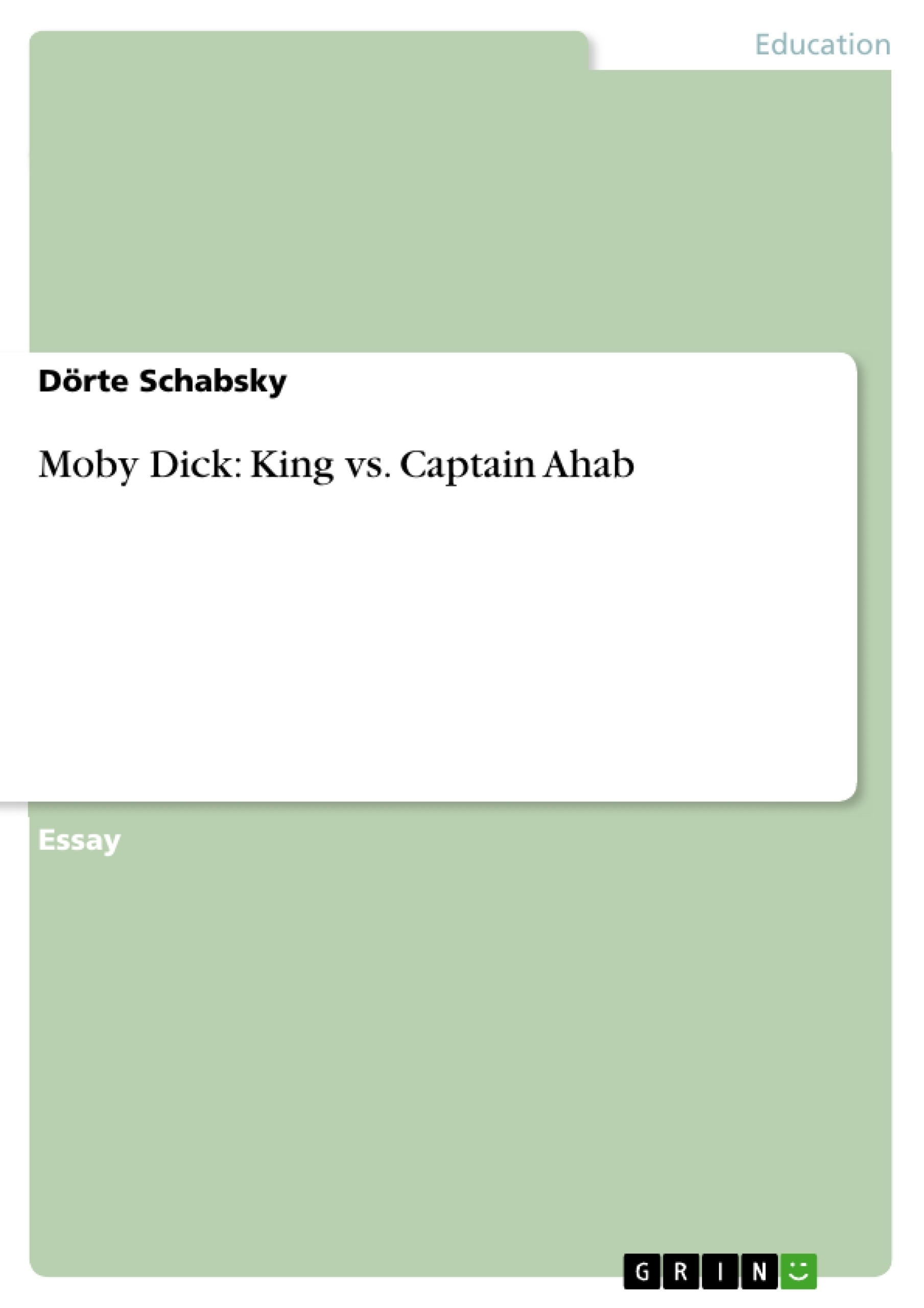The choice of name of Captain Ahab evokes a range of biblical allusions which stigmatize the protagonist by the first mention of his name.
This essay explores these biblical allusions.
Inhaltsverzeichnis (Table of Contents)
- King vs. Captain Ahab
Zielsetzung und Themenschwerpunkte (Objectives and Key Themes)
The main objective of this text is to analyze the allusions to the biblical King Ahab in the naming of Captain Ahab in Herman Melville's Moby Dick. The analysis explores how this naming choice impacts the reader's perception of the character and foreshadows his fate.
- Biblical Allusions in Literature
- Character Development through Naming Conventions
- Thematic Parallels between King Ahab and Captain Ahab
- Reader Perception and Foreshadowing
- Interpretation of Prophetic Elements
Zusammenfassung der Kapitel (Chapter Summaries)
King vs. Captain Ahab: This chapter delves into the intricate connection between Captain Ahab's name and the biblical King Ahab. It meticulously explores the parallels between their statuses – both as leaders, one a king and the other a captain – and their actions. The analysis highlights how Ahab's defiance of rules and pursuit of revenge mirror King Ahab's transgressions. The chapter extensively examines the prophetic implications of the name, referencing specific biblical passages and scholarly interpretations to demonstrate how the allusion foreshadows Captain Ahab's fate. It also considers the contrasting views presented by different characters, such as Captain Peleg, who portrays Ahab as a "good man," despite the negative connotations of his name, forcing the reader to confront their own interpretations and biases. The chapter ultimately argues that the very act of naming the character "Ahab" immediately casts a negative shadow, influencing the reader’s judgment even before his actions are fully revealed, and setting the stage for the narrative's tragic trajectory.
Schlüsselwörter (Keywords)
Biblical allusions, Herman Melville, Moby Dick, Captain Ahab, King Ahab, character analysis, literary interpretation, foreshadowing, prophecy, thematic parallels, narrative structure, reader response.
Frequently Asked Questions: Ahab: King vs. Captain
What is the main objective of this text?
The main objective is to analyze the allusions to the biblical King Ahab in the naming of Captain Ahab in Herman Melville's Moby Dick, exploring how this naming choice impacts reader perception and foreshadows his fate.
What are the key themes explored in this text?
Key themes include biblical allusions in literature, character development through naming conventions, thematic parallels between King Ahab and Captain Ahab, reader perception and foreshadowing, and the interpretation of prophetic elements within the narrative.
What is the focus of the "King vs. Captain Ahab" chapter?
This chapter delves into the intricate connection between Captain Ahab's name and the biblical King Ahab. It explores parallels in their leadership and actions, highlighting Ahab's defiance and pursuit of revenge. The chapter examines the prophetic implications of the name, referencing biblical passages and scholarly interpretations to show how the allusion foreshadows Captain Ahab's fate. It also considers contrasting views from other characters, forcing the reader to confront their own interpretations and biases. The chapter argues that the name itself casts a negative shadow, influencing reader judgment even before Ahab's actions are fully revealed.
What are the key takeaways from the chapter summaries?
The chapter summary emphasizes the profound impact of the name "Ahab" on the reader's understanding of the character and the narrative's tragic trajectory. It highlights the intricate analysis of biblical allusions and their literary function in shaping character development and foreshadowing events.
What keywords are associated with this text?
Keywords include Biblical allusions, Herman Melville, Moby Dick, Captain Ahab, King Ahab, character analysis, literary interpretation, foreshadowing, prophecy, thematic parallels, narrative structure, and reader response.
What is covered in the Table of Contents?
The provided Table of Contents currently only lists one item: "King vs. Captain Ahab".
What type of analysis does this text provide?
This text provides a literary analysis focusing on the use of biblical allusion and its impact on character development and reader interpretation within the context of Herman Melville's Moby Dick.
For whom is this text intended?
This text, with its academic approach and in-depth analysis, is intended for academic use, particularly for those studying literature, biblical allusions, or character analysis.
- Citation du texte
- Dörte Schabsky (Auteur), 2008, Moby Dick: King vs. Captain Ahab, Munich, GRIN Verlag, https://www.grin.com/document/154159



